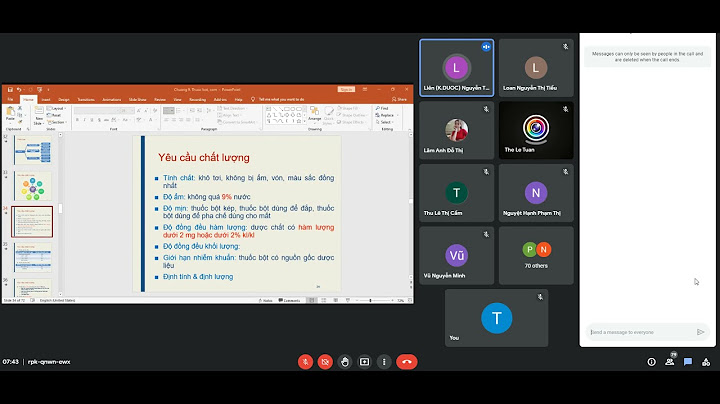DataCamp is a website to learn programming for data analytics and data science. Over the past few years, I’ve managed to complete 44 courses as well as eight learning tracks offered by DataCamp, totaling 308 hours of coursework. In this article, I take an overall look at my DataCamp experiences and share five reflections you may want to consider before embarking on (or even during) your own data science learning journey. Show
Is DataCamp Worth It?DataCamp allowed me to hit the ground running when I was hired as a data analyst and later as an analytics consultant working in a team full of data analysts, data engineers and data scientists. Familiarity with both Python and R will allow you to work on projects straight away and become a solid contributor while having the confidence in your coding and data analysis skills to add value in your team. This entry-point level of confidence is vital to then help you to both practice your learning with real-life projects while effectively learning on the job with your team. At the same time, DataCamp’s in-browser value proposition (meaning you rarely step out of their website to learn for the majority of the time) and built-in IDE (integrated development environment) means you miss out on hands-on experiences with a number of other skills. I’ve completed the following skill and career tracks (the ones in bold are career tracks).
Here’s a brief summary of my learning profile, as well as some of the key track accomplishments:   I’ve been using the platform on and off over the past few years. DataCamp has been a valuable resource to continue improving my data science and programming skills in order to be more effective at my job overall since I often encounter interesting data analytics opportunities that require me to keep learning. DataCamp has definitely been the key starting point for me in terms of becoming a self-taught data analytics professional because it enables me to work on projects I enjoy and write about all things data science. That said, it has its drawbacks. Read More From Built In Data Science ExpertsBaffled by Covariance vs. Correlation? You’re Not Alone. DataCamp Teaches Core ProgrammingDataCamp excels at teaching the key fundamentals and giving learners the tools they need to get started. In a nutshell, DataCamp teaches core programming very well. Lessons on general programming context and syntax are followed intuitively in the curriculum by the introduction of data analysis and science-specific packages, such as Pandas in Python for data cleaning and manipulation or ggplot in R for data visualization. The transition is seamless and scaffolded well.Learning plans are bite-sized (meaning courses within a given plan/track are broken down in sections of two to four hours per course) and keep the course material manageable while also providing a modular learning experience. DataCamp also covers the workflows those same learning plans are organized around. After the initial core programming lessons, you immediately get involved in the circular Data Import > Data Cleaning > Data Modeling > Data Presentation process which is very much used in practice. This organization helps you get accustomed to working with data under scenarios that are similar to what you’ll later encounter as you dive into data analytics in whatever role you may land as a result of picking up these skills. Looking for More Opportunities to Upskill? We Got You.Try Built In’s Learning Lab Courses Is DataCamp Worth It?DataCamp enabled me to hit the ground running when I was hired as a data analyst and later as an analytics consultant working in a team full of data analysts, data engineers and data scientists. Familiarity with both Python and R will allow you to work on projects straight away and become a solid contributor while having the confidence in your coding and data analysis skills to add value in your team. This entry-point level of confidence is vital to then help you to both practice your learning with real-world projects while effectively learning on the job with your team. At the same time, DataCamp’s in-browser value proposition (meaning you rarely step out of their website to learn for the majority of the time) and built-in IDE (integrated development environment) means you miss out on hands-on experiences with a number of other skills including:
By no means should this should discourage you from learning on DataCamp, but it’s definitely something to keep in mind as you will likely need to supplement your learning experience with other resources. Also note that some of this may have changed/improved since I last took their courses, as these platforms are always changing. More Professional Development for Data Scientists4 Essential Skills Every Data Scientist Needs Where DataCamp Leaves You Wanting MoreDataCamp may feel like a very condensed version of all there is to know about working with data and using technology to work on data science projects. It almost feels too easy and guided. In a way, that’s because the platform and the team are very good at developing learning content in a way that is accessible and attracts students. Simplicity, though, should not get in the way with the curiosity you will develop for learning all things data, which you won’t find neatly packaged in DataCamp. That’s why I suggest stepping out of DataCamp after completing a couple of tracks and getting to learn more about the following topics via books and other learning platforms which supplement what DataCamp does not have as far as getting to the core of data science as a discipline. What can a computer scientist learn at datacamp?Through DataCamp, computer scientists can learn Python, R, SQL, and more, all while building their data science portfolio through real-world projects. Courses: Individual data science courses such as Introduction to Python, Introduction to SQL, and Introduction to R introduce students to a single concept at a time. Does datacamp offer a Python course?DataCamp offers six courses for free, notably a comprehensive one on Python. If you’re wondering whether DataCamp provides the right learning tools for you or want a DataCamp Python review, check out these six courses: An excellent introduction to data science. Is datacamp worth it?Due to its tight focus, rigorous controls, and quality assurance, DataCamp generally provides a great overall learning experience. DataCamp is a great way to actually learn data science and data engineering. However, not all employers may acknowledge DataCamp’s value or credentials. Is Python a good program for data science?DataCamp is firmly designed for the data science and data engineering fields. So, even in the “Introduction to Python” classes, Python is mostly taught for data science, even though it is a general-purpose programming language. Because of this, you should be certain that you’re interested in the field of data science first. Is DataCamp data scientist certification worth it?The short answer is yes. As is demonstrated by the stories of our certified learners, becoming a certified data scientist gives you: An advantage over other candidates. Proof of your data science skills, whether you're transitioning from another profession or completely new to data science. Has anyone gotten a job from DataCamp?Jamen Long used the skills he learned at DataCamp to land a full time job as a data scientist. As a manager, DataCamp helps me show my team new packages and new ways to solve problems. Gabriel uses DataCamp to show his team new packages and libraries, and to teach himself new techniques. Is Python good for data scientist?As a general-purpose programming language, Python is the standard go-to choice for software developers breaking into data science. Plus, Python's focus on productivity makes it a more suitable tool to build complex applications. Is DataCamp worth it in 2023?This will give you a feel for the platform and help you decide if it is the right fit for your learning needs. In conclusion, DataCamp remains a potent player in online data science education in 2023. If you're looking to master data skills and boost your career, it's worth giving DataCamp a closer look. |




















